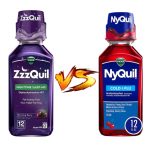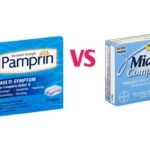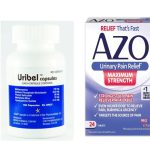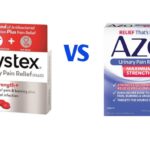Doxylamine Vs Diphenhydramine: Differences and Similarities

Antihistamines are widely used over-the-counter medications that help relieve symptoms associated with allergies, hay fever, and common colds. Two common antihistamines frequently found in various medications are Doxylamine and Diphenhydramine. While both substances effectively combat histamine-induced symptoms, they differ in their pharmacological properties, side effects, and recommended uses.
In this article, we will delve into the comparison between Doxylamine and Diphenhydramine, helping you make an informed choice when selecting the right antihistamine for your needs.
1. Pharmacological Differences
Doxylamine and Diphenhydramine are both first-generation antihistamines, which means they work by blocking histamine receptors in the body. Histamine is a chemical produced by the immune system during allergic reactions, causing symptoms such as sneezing, itching, runny nose, and watery eyes.
Doxylamine is an ethanolamine-based antihistamine that exhibits strong anticholinergic properties. Its sedative effect is notably stronger compared to Diphenhydramine, making it a popular choice for addressing sleep-related issues, such as insomnia.
Diphenhydramine, on the other hand, is an ethanolamine-based antihistamine as well, but its sedative effect is generally milder than Doxylamine. This makes Diphenhydramine more suitable for daytime use when drowsiness needs to be minimized.
2. Uses and Indications
Doxylamine and Diphenhydramine share a wide range of uses due to their antihistamine properties, but their specific indications differ.
Doxylamine is commonly used for:
a) Sleep Aid: Due to its strong sedative effects, Doxylamine is often included in over-the-counter sleep aids to help individuals fall asleep faster and maintain a night of restful sleep.
b) Allergy Relief: Doxylamine can effectively alleviate symptoms associated with hay fever, such as sneezing, itching, and a runny nose.
Diphenhydramine is commonly used for:
a) Allergy Relief: Like Doxylamine, Diphenhydramine is effective in treating allergy symptoms like sneezing, itching, and runny nose.
b) Motion Sickness: Diphenhydramine can provide relief from motion sickness and nausea.
c) Mild Sleep Aid: Although Diphenhydramine induces drowsiness, its sedative effect is milder than Doxylamine, making it suitable for those who need a daytime allergy relief medication that causes less drowsiness.
3. Side Effects
Both Doxylamine and Diphenhydramine may cause certain side effects, especially when used inappropriately or in excess.
Common side effects of Doxylamine include:
• Drowsiness
• Dry mouth
• Dizziness
• Blurred vision
• Constipation
• Urinary retention
Common side effects of Diphenhydramine include:
• Drowsiness
• Dry mouth
• Dizziness
• Nausea
• Headache
• Abdominal discomfort
4. Precautions and Interactions
As with any medication, there are certain precautions and potential interactions to consider before using Doxylamine or Diphenhydramine.
Precautions for Doxylamine use:
• Avoid alcohol consumption while using Doxylamine, as it can enhance its sedative effects.
• Individuals with glaucoma, respiratory conditions, or urinary retention should exercise caution when using Doxylamine.
Precautions for Diphenhydramine use:
• Diphenhydramine may interact with other medications, including prescription drugs and herbal supplements, so it’s crucial to consult a healthcare professional before use.
• It is not recommended for use in children under the age of six unless directed by a doctor.
Can I take Doxylamine and Diphenhydramine together?
No, combining Doxylamine and Diphenhydramine is generally not recommended without consulting a healthcare professional first. Both Doxylamine and Diphenhydramine are first-generation antihistamines that can cause similar side effects, including drowsiness, dizziness, and dry mouth. Taking them together can increase the risk of experiencing these side effects, and in some cases, it may lead to more severe adverse reactions.
It is essential to remember that these medications can interact with other substances or medications you might be taking, including prescription drugs and herbal supplements. Mixing antihistamines without proper medical guidance can potentially lead to unintended consequences and health risks.
If you are experiencing persistent or severe allergy symptoms or sleep issues, it is best to consult a healthcare professional who can provide personalized advice and recommend the most appropriate course of treatment for your specific needs.
Always follow the dosing instructions on the medication’s label or the directions given by your healthcare provider. Never take more than the recommended dose of any medication, and avoid self-medicating without proper guidance to ensure your safety and well-being.
Conclusion
Doxylamine and Diphenhydramine are both effective antihistamines that can provide relief from various allergy symptoms. However, they differ in their sedative potency and specific use cases. Doxylamine is known for its stronger sedative effects and is commonly used as a nighttime sleep aid, while Diphenhydramine offers milder sedation, making it suitable for daytime use.
Before selecting an antihistamine, consider your specific needs, the severity of your symptoms, and any other medical conditions you may have. It is always best to consult a healthcare professional to determine the most appropriate antihistamine for your situation. Additionally, follow the recommended dosages and precautions to ensure safe and effective use of these medications.





